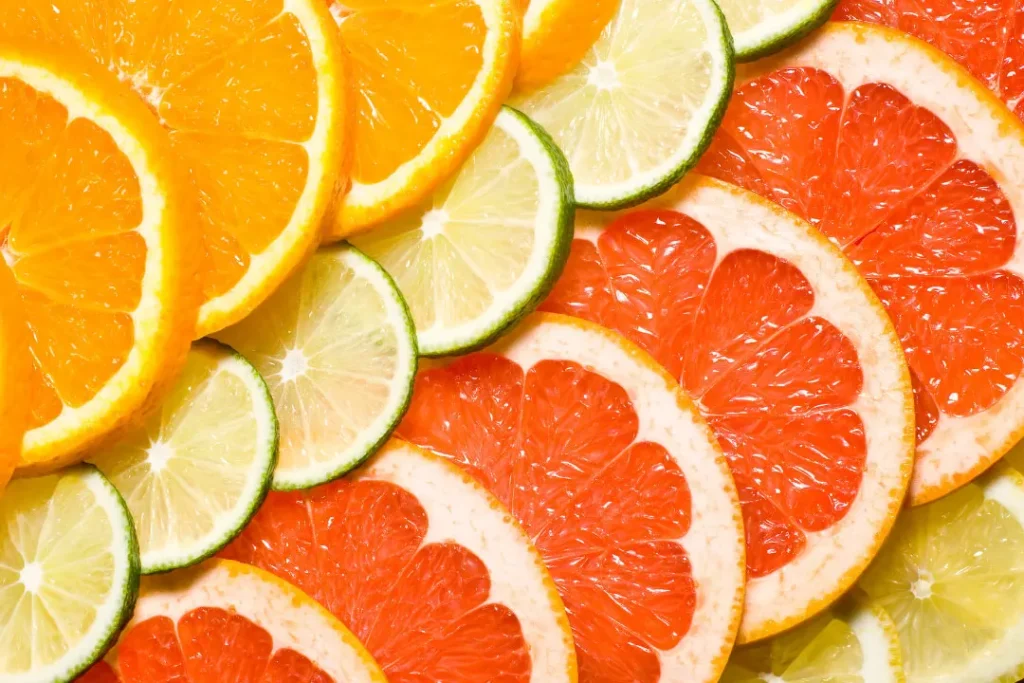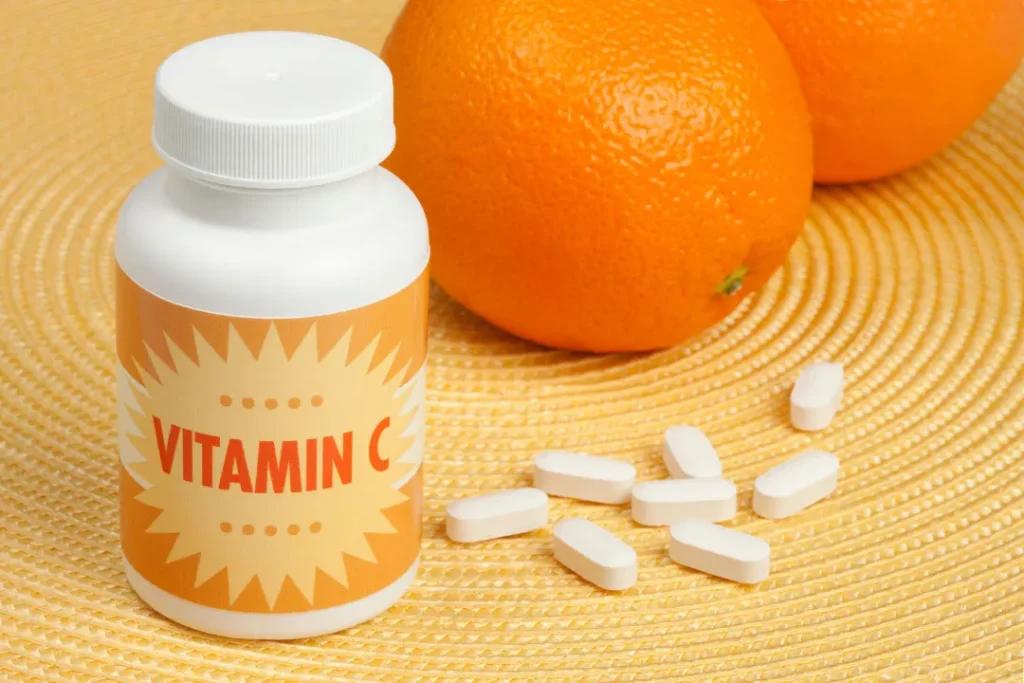Should You Try Juice for Immune System Benefits? Here Are the Facts.
Juicing is often advocated as a great way to lose weight, support overall health, and boost immune function, but does it truly deliver on its promise? We’ll take a look at the facts and help you find the healthiest way to support your immune system for fewer sick days and radiant health.
Juicing is a popular health trend that’s proven to have staying power. Over the years, different producers of juice, juicing machines, and juice recipes have claimed that their products can aid in weight loss, detoxify the body, and even prevent cancer. While not all of these claims hold water, certain juices do contain vitamins that are beneficial to the immune system.
Nevertheless, not all juices are equally healthy, and the claims made by producers of juice for immune system health are not always based on fact. Additionally, some producers may omit or downplay certain negative aspects of their products. This article will examine some of the pros and cons of juice for immune system health, taking into account the scientific research that supports (or refutes) the claims of juice products and recipes.
You May Also Like:
Good Morning Coffee: 5 Ways To Boost Your Hot Love
Brain Pill Reviews: Leading Edge Health vs Medicine Man Plant Co.
Vitamin C in juice for immune system function
It’s such a common home remedy that most of us have tried it at least once: when you’re sick, drink orange juice for vitamin C. There are also many vitamin C supplements that claim to reduce the duration of the common cold. Vitamin C is indeed beneficial to the body’s natural defense against infection. Vitamin C boosts the immune system by stimulating white blood cells, directing them toward infections. Moreover, vitamin C helps improve the rate and efficacy of phagocytosis, a process in which certain cells absorb and digest bacteria. Citrus fruits, including oranges, are rich in vitamin C, making orange-based juices a great source of immune-boosting nutrients.

Elderberry juice for immune system function
Many a juice for immune system health advertises that it contains elderberry, and for good reasons. Like citrus fruits, elderberries contain significant amounts of vitamin C. However, elderberries also contain anthocyanins, which are powerful antioxidants that give them their dark purple color. Antioxidants can support whole-body health by shielding cells from damage. While anthocyanins benefit the whole body, they can be especially potent in boosting the function of immune cells, such as white blood cells and phagocytes.
In fact, a 2016 study found that people who supplemented with elderberry extract were less likely to get sick during air travel. Elderberries’ high vitamin C content, along with anthocyanins, make them a great addition to any juice for immune system health, helping to keep the immune system fighting fit.
Vitamin A in juice for immune system function
Vitamin A is mostly known for its role in maintaining healthy vision, but it also helps regulate the immune system. Much like vitamin C, vitamin A stimulates the immune system, increasing the activity of disease-fighting cells. Vitamin A also helps boost immune function by helping to form and maintain epithelial tissue, a natural barrier that protects the body from pathogens. Furthermore, vitamin A can help increase the rate of production of immunoglobulins, also known as antibodies, which are indispensable in the immune response.
Beta-carotene, a form of vitamin A, is found abundantly in many common juice ingredients for immune function, including carrots, oranges, and apples. Juice that contains these ingredients contains at least some vitamin A, which can stimulate the immune system for greater infection-fighting ability.
Sugar and juice for immune system health
When weighing the pros and cons of juice for immune system health, one concern that arises frequently is that of sugar. In the long term, overconsumption of sugar can lead to higher blood pressure, more frequent inflammation, and diabetes. All fruit and some vegetables used in juice contain sugar in the form of fructose. However, fructose is contained in the fiber of these fruits and vegetables, and the human body digests fiber slowly. Therefore, the sugar contained within it is released into the bloodstream incrementally and is less likely to cause health issues than so-called “free sugar.”
Essentially, sugar isn’t as much of a concern when it comes to eating fruit — but in juice, the formerly innocuous fructose can be harmful. This is because the fibers of fruit and vegetables break down during the juicing process, causing the fructose to enter the bloodstream more rapidly, effectively becoming free sugar. The sugar in juice is not the same as the relatively harmless fructose in fruits and vegetables. Therefore, the sugar content of juice for immune system health should always be considered as a potential detriment against the stated benefits.

Availability of nutrients in juice for immune system function
While vitamin A, vitamin C, and anthocyanin levels are naturally high in raw, unprocessed fruits, juices made from these fruits may not retain the same nutrient levels. This is because vitamins are not always shelf-stable, so bottled juices may contain even fewer nutrients for immune health than fresh juices. Studies have found that the vitamin C in orange juice deteriorates as it sits on the shelf, even weeks before the juice’s expiration date.
Fresh juice may be better than bottled juice, but there is a third option that may be even better: a complete, immune-boosting daily supplement blend. Medicine Man Plant Co.’s The Immune Pill is an exemplary supplement that has the potential to easily replace any juice that claims to benefit the immune system. This supplement contains pure vitamin C and elderberry extract, along with cordyceps mushroom, which has similar immunostimulatory effects to vitamin C.
Unlike juice, it contains no added sugar, and a thirty-day supply is far more affordable than even the most cost-effective juice. The Immune Pill provides all the benefits of juice for immune system health without any of its drawbacks.
Juice for immune system health is a mixed bag, but supplements are easy and effective
Juice products and recipes that claim to benefit the immune system may contain vitamin A, vitamin C, and anthocyanins, but their risks sometimes outweigh their advantages. Sugar content should always be a concern with juice products, whether bottled or fresh. Although some juices that are organic, simple, and fresh can be good for promoting healthy immune function, taking an oral supplement is a more convenient and affordable option that lacks many of the potential risks associated with juice.

Further Links for Additional Reference:
NIH National Library of Health: Randomized study of the efficacy and safety of oral elderberry extract in the treatment of influenza A and B virus infections
Cleveland Clinic: Is 100% Fruit Juice Good for You?
Harvard Health Publishing: Are fresh juice drinks as healthy as they seem?
Important Note: The information contained in this article is for general informational purposes only, and should not be construed as health or medical advice, nor is it intended to diagnose, prevent, treat, or cure any disease or health condition. Before embarking on any diet, fitness regimen, or program of nutritional supplementation, it is advisable to consult your healthcare professional in order to determine its safety and probable efficacy in terms of your individual state of health.
Regarding Nutritional Supplements Or Other Non-Prescription Health Products: If any nutritional supplements or other non-prescription health products are mentioned in the foregoing article, any claims or statements made about them have not been evaluated by the U.S. Food and Drug Administration, and such nutritional supplements or other health products are not intended to diagnose, treat, cure, or prevent any disease.





